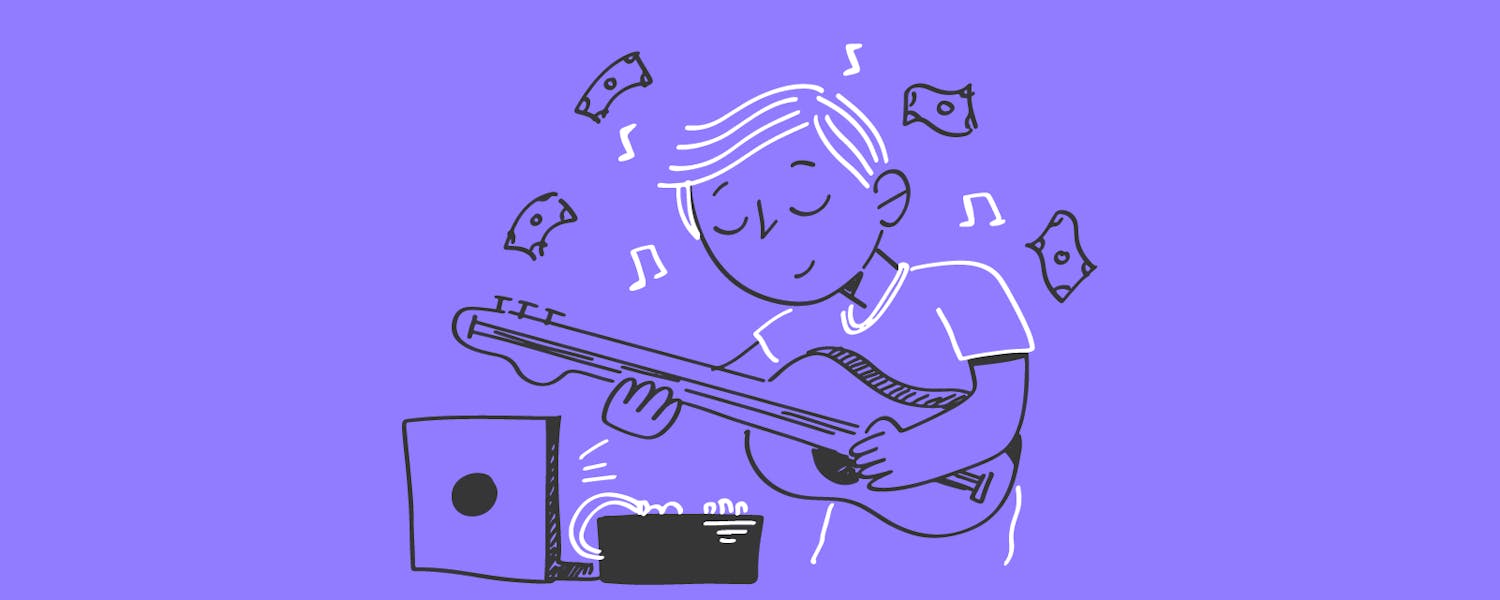The ABC’s to avoid financial scams
Financial scams are everywhere, and you could quickly become a victim if you don't know the red flags.
Here's everything you must know about financial scams and how to avoid them.
What is a Financial Scam?
A financial scam can take on many looks. You can get scammed by someone pretending to be a bank representative, tax collector, or charity.
Scammers often use scare tactics to get you to act quickly without thinking or talking to anyone else.
All financial scams have one thing in common — they get a hold of your money, bank account information, or other sensitive financial information.
How Do Scammers Profit?
Scammers profit in many ways. For example, if a scammer convinces you to wire $10,000, they profit by getting your money. If you give your bank account information to someone running a hoax, you may unknowingly give them access to your bank account or credit cards.
Envato/vinnikava
How Can You Identify a Scam or a Scammer?
Because financial scams are so common, it's essential to know how to identify someone trying to take advantage of you and using deceitful practices.
Here are some common things to look for:
- The offer they provide seems too good to be true.
- There aren’t any identifying factors for the ‘company’ online when you look them up.
- The scammer demands you send money now, giving you only an hour to respond
- The scammer asks for payment in obscure ways (gift cards, Western Union, etcetera).
- The scammer asks for personal information that no bank or creditor would ask, such as your password or bank account number.
Use your gut when deciding if it's a scam.
Envato/fauziEv8
If the situation doesn't sit right with you, it's best to avoid it.
You're better off missing a 'great deal' than unknowingly giving away your private financial information.
The Top 12 Financial Scams and What to Look For
In 2022, Americans lost $8.8 billion dollars to scammers, which is a 30% increase from 2021. While there are thousands of financial scams, here are the top 12 scams to watch out for and avoid.
Tax Scams
Scammers often pretend to be tax collectors or tax representatives to help you file your taxes or steal your Social Security number and work under it, sticking you with the tax bill.
How to avoid: Never share your Social Security number or other sensitive information with someone that calls you. The IRS, your bank, and other creditors will not ask for this information.
Envato/innu_asha84
 IRS Scams
IRS Scams
IRS scams are the scariest because criminals will pretend to be tax collectors and threaten to send you to jail if you don’t pay immediately.
How to avoid: Don’t follow their instructions and wire money immediately. Instead, hang up and call the IRS yourself to see if it’s legit (it usually isn’t).
Bank Scams
Some criminals running a ripoff will pretend to be a bank representative or email you from an email similar to your bank's, asking for your bank login information. Other scammers will mail you a check and insist that you cash it and wire a part of it to them immediately, but the checks are always fake.
How to avoid: Never share personal financial information, including IDs and passwords. Your bank will never ask for those questions and ignore anyone offering to ‘make you money’ if you just cash their check.
Investing Scams
Envato/Garakta-Studio
Impersonating a real investment advisor is a common investment hoax. The scammers make people believe they are legit and can make big money. Instead, they use the money you pay them to pay other investors they’ve scammed and keep the money for themselves.
How to avoid: Research about the investment and question the caller about any doubt you can come with, fraudsters are counting on you not to investigate before you invest, and while you look up for information related to the investment, learn more about the salesperson and don't hesitate about asking personal questions to corroborate their identity, such as licenses or certificates he counts with.
Credit Card Scams
Many scammers act like credit card companies and talk you into providing your card’s security digits. If the scammer already has your credit card number and expiration date, they can use your card for virtual purposes.
How to avoid: Never share your credit card’s security code. A credit card company will never ask for it.
Money-Transfer Scams
Envato/DragonImages
Many criminals running a racket will convince you that you won a contest or prize or that they can get you money some other way, providing a return on your 'investment.' Neither is ever true, putting you at risk of being scammed.
How to avoid: If someone promises to double your money, it’s too good to be true and should be avoided.
Online Dating Scams
Scammers hang out on dating sites, getting people to 'fall in love with them' and then ask for money for something like surgery or to help their poor cousin. The stories aren't true, and they will run with your money.
How to avoid: Research dating sites and the people on them to avoid unnecessary scams.
Real Estate Scams
Criminals often impersonate mortgage companies, movers, or other real estate professionals you may owe money to, asking you to wire it to them, and then they run with your money.
Envato/donut3771
How to avoid: Only give your financial information to the people you initiate the call with and know are the people you owe.
Email Scams
Email scams impersonate emails you might receive from real companies, convincing you the scammer is the company and getting you to click on links or share personal information so they can hack your accounts.
How to avoid: Never click on links you didn’t request, and always look closely at the email address it originated from. There are often minor telltale signs that it's not legit.
Charity Scams
Criminals often set up fake charities and get unsuspecting people to donate. Most people find out after it's too late that they weren't real.
How to avoid: Only give to charities you know and trust, and only if you initiate the call or request to donate.
Envato/TTereza
Senior Scams
Seniors are a hot target for hoaxes. A common one is the scammer pretends to be their grandchild or to have their grandchild, demanding money within the hour or they will hurt the child.
How to avoid: If you receive a call like this, call the police first.
Ransomware
Many criminals get people to click on links that give the hacker control of their computer. They hold it ransom until you pay them.
How to avoid: Don’t click on links you don’t recognize or didn’t request.
Final Thoughts
Always be on high alert, never share your passwords or personal information, and if something doesn't seem right, tell someone, including the police. You are much better off being safe than sorry, and your finances are at risk.





